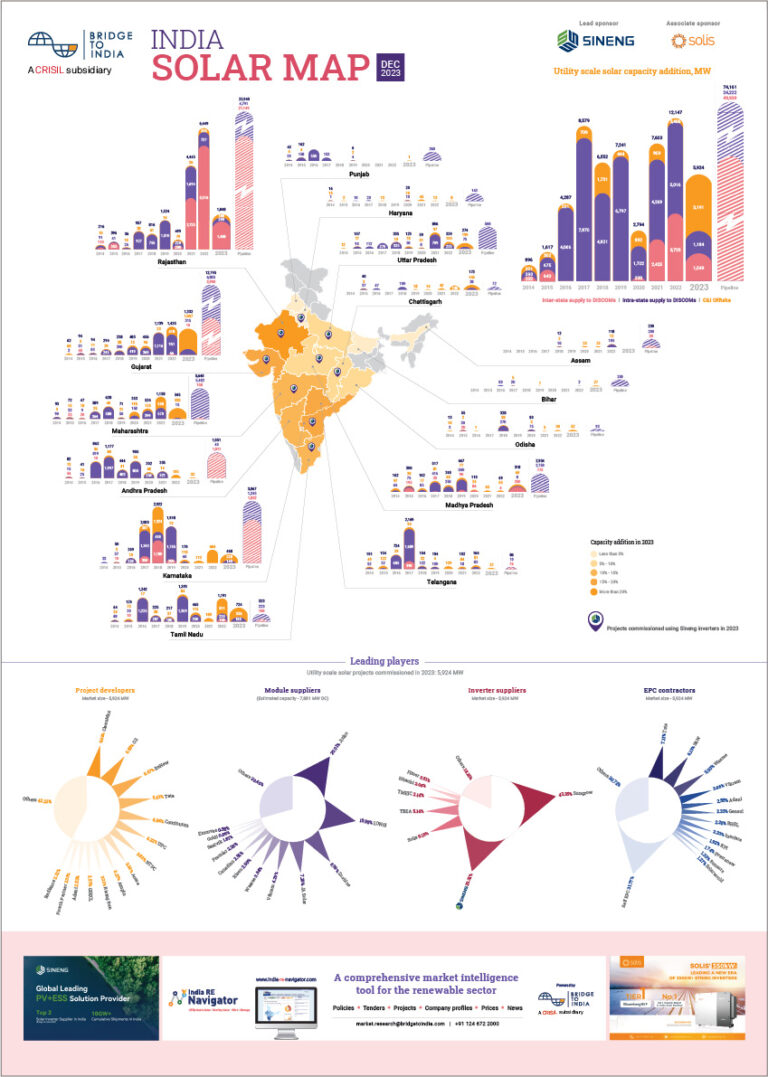Tamil Nadu Energy Development Authority (TEDA) has released a draft solar policy for comments. The draft policy envisions a total installed capacity of 8,884 MW by 2022; 40% (3,553 MW) of this capacity is expected to be added by rooftop solar systems. Key proposed provisions in the policy are:
- Gross as well as net metering proposed to be allowed; group metering and virtual net metering have also been proposed;
- No cap for rooftop solar systems on electricity exports to the grid;
- Connected PV load at distribution transformer level enhanced from 30% to 120%;
- Open access charges such as wheeling, banking and cross subsidy surcharges to be exempted for solar power;
- Feed-in tariffs for solar energy storage, designed to incentivize injection into grid at peak hours;
- Enforcement of Energy Conservation Building Code (ECBC) norms on mandated buildings; solar energy usage targets for public buildings, streetlighting and water supply installations;
- 10% of government vehicle fleet to be converted to solar powered electric vehicles;
The draft policy contains significant incentives for rooftop solar and open access solar. Rooftop solar has slowed down in Tamil Nadu and the state has lost its leadership position of late. Thus far, only residential and small commercial consumers were allowed to apply for net metering connections. Now, it is proposed to allow all consumer categories to obtain a net metering connection. We have heard many complaints in implementation with regard to timelines. Applications are often rejected or delayed indefinitely. Approvals can take anywhere between three to six months. The new policy proposes to cut down time required for meter installation to three weeks from the date of receipt of application.
The draft policy proposes use of bi-directional meters only for new connections from April 2019 to enable households to be ready for future rooftop solar adoption. It also proposes that municipalities and local urban bodies shall provide property tax waivers to domestic building owners who install rooftop solar plants.
The draft policy is progressive and tries to address many of the issues plaguing the solar power sector in Tamil Nadu. But given Tamil Nadu’s past record, it remains to be seen if execution can be effective. Increasing distribution level penetration would require infrastructure upgrades with significant upfront investment. Unless implementation issues are addressed, the policy is unlikely to translate to positive outcomes for the solar sector in Tamil Nadu.












